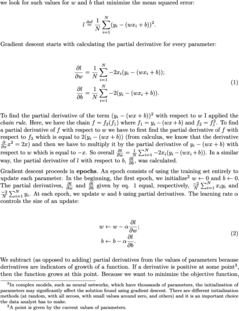Let a discrete random variable \(X\) have \(k\) possible values \(\{ x_i \}_{i=1}^k\). The expectation of \(X\) denoted as \(\mathbb E[X]\) is given by,
\(\begin{align}
\mathbb E[X] & \stackrel{\textrm{def}}{=} \sum_{i=1}^k \left[ x_i \cdot \textrm{Pr} \left( X = x_i \right) \right] \\
& = x_1 \cdot \textrm{Pr} \left( X = x_1 \right) + x_2 \cdot \textrm{Pr} \left( X = x_2 \right) + \cdots + x_k \cdot \textrm{Pr} \left( X = x_k \right)
\end{align}\)
where \(\textrm{Pr} \left( X = x_i \right)\) is the probability that \(X\) has the value \(x_i\) according to the pmf. The expectation of a random variable is also called the mean, average or expected value and is frequently denoted with the letter \(\mu\) . The expectation is one of the most important statistics of a random variable.


